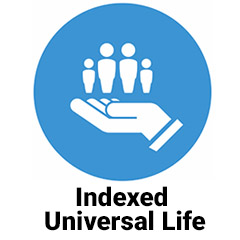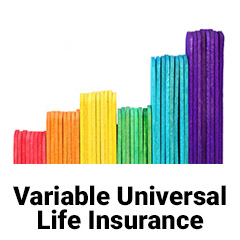Choosing a collateral assignment with life insurance as security can be an effective strategy for securing a loan, especially for those who might not qualify for traditional financing options. This article will delve into the specifics of SBA loans, a type of financing backed by the U.S. Small Business Administration designed to support the growth of small businesses in America. SBA loans, including the 7(a) and CDC 504 programs, offer a more accessible path to funding for startups and small enterprises, albeit with more stringent requirements compared to regular bank loans. Furthermore, we’ll explore the SBA’s criteria for life insurance as collateral, highlighting the importance of securing a policy that not only meets these requirements but also aligns with the borrower’s long-term financial goals. Understanding the nuances of term life insurance versus cash value life insurance options in this context can significantly impact the borrower’s financial planning and the overall cost-effectiveness of the loan.
Table of Contents
- Key Takeaways
- What is an SBA Loan?
- Eligibility for an SBA Loan
- SBA Requirements for Life Insurance
- What is a Collateral Assignment of Life Insurance?
- SBA Options for Life Insurance
- No Exam Life Insurance for SBA Loans
- Cash Value Life Insurance Benefits
Key Takeaways
When considering an SBA loan, using life insurance as collateral involves several key points:
- Collateral Assignment: Utilizing life insurance as security through a collateral assignment can help secure loans, particularly for those who may not qualify for traditional loans.
- SBA Loans: These loans are supported by the Small Business Administration to aid small business startups and expansions in the U.S., with programs like 7(a) and CDC 504 offering accessible funding routes.
- Loan Requirements: SBA loans have more stringent requirements than typical bank loans, including the necessity for life insurance as collateral in certain cases.
- Life Insurance as Collateral: The lender can claim part or all of the life insurance death benefit if the loan is not repaid, but they do not become the policy beneficiary.
- Insurance Options: Borrowers have broad life insurance options to meet SBA requirements, focusing solely on the death benefit aspect.
- Term vs. Permanent
- Term Life Insurance: Offers a cost-effective way to meet immediate death benefit requirements but lacks cash value accumulation and may become prohibitively expensive over time. No medical exam options are available.
- Permanent Life Insurance: Includes types like Whole Life, Indexed Universal Life, Guaranteed Universal Life, and Variable Universal Life, offering lifelong coverage, cash value accumulation, and potential strategic financial benefits. No medical exam options are available.
- Strategic Considerations: Opting for permanent over term insurance could provide long-term financial advantages, including cash value accumulation and stable premium costs, which can be pivotal for financial planning and fulfilling SBA loan requirements.
What is an SBA Loan?
SBA is the acronym for “Small Business Administration” which is an agency of the federal government tasked with encouraging the development and growth of small businesses in the United States. An SBA loan then is a type of small business loan that is backed by the U.S. government and thus may be easier to qualify for than other loans.
The catch is that these loans will tend to have a few more requirements than conventional bank loans. SBA loans are primarily designed for those who are starting or expanding small business ventures. There are also loans available for funding development projects that offer a benefit to the community. For simplicity, loans for helping existing start up and small businesses are called 7(a) loans whereas development loans are CDC 504 loans.
CDC refers to a “certified development corporation” that is created to contribute to the economic welfare of the community.
7(a) loans may be obtained to provide financing for a variety of business purposes including funding start up costs, real estate or equipment acquisitions, marketing or personnel costs. SBA does not make loans itself but rather guarantees the repayment to various participating lenders throughout the country. This guarantee reduces the risk to the lender, while the borrower will be obligated to repay the full amount of the loan.
Eligibility for an SBA Loan
While many businesses are eligible for SBA loans, some are not.
The following SBA Loan requirements generally apply:
- Operating for profit (applies to 7(a) loans and NOT CDC 504 loans)
- Engaged in business (or proposed to engage in business) in the United States
- Have reasonable owner equity to invest
- Using alternative financial resources (including personal assets) before investing
In general, the requirements for obtaining an SBA loan may be less stringent than most conventional loans, but extensive documentation is still required.
SBA Requirements for Life Insurance
One way that SBA protects itself (as guarantor) with 7(a) loans is by requiring life insurance for those who are responsible for the loans. Generally, participating lenders for SBA 7(a) loans may follow their normal internal policy for commercial loans when it comes to life insurance.
However, if the loan is not “fully secured” by assets such as real estate or equipment, then life insurance is required for the principals of the business which may include sole proprietors, partners or members of LLCs, or those other individuals upon whom the business is dependent. If a principal is deemed uninsurable, then a letter from the insurer may be required.
In general, the procedural rules of the SBA require that any business that is tied to an individual or individuals must purchase life insurance to protect the individual and his/her family as well as the lender. Life insurance policies are often purchased for the full amount of the loan, but the amount of any collateral may be factored into the requirements.
What is a Collateral Assignment of Life Insurance?

In this setup, your lender doesn’t become a beneficiary of your policy. By making them a collateral assignee, you ensure they’re only entitled to what you owe them—the unpaid loan balance. Any remaining death benefit after settling your debt would go to your chosen beneficiary.
SBA Options for Life Insurance
Because the SBA is concerned only about the death benefit of the policy held with the principal as the insured, your life insurance options for SBA loans are very broad. All life insurance offers a death benefit.
Before we get into the various types and options of life insurance for SBA loans, I would like to offer a little bit of background. Without some context, you might conclude that there is no reason to purchase anything other than cheap term life insurance to satisfy the SBA requirements and in one sense this assumption might be right but for a few important strategic considerations.
Term Life Insurance for SBA Loans
As we discussed above, the SBA is mainly concerned with protecting against the loss of a key business person in order to protect his/her family as well as the lender. In this respect, the analysis parallels some of our recent discussions highlighting the best key person insurance.
On one hand, term life insurance is the cheapest way to procure a death benefit. The principals can simply purchase a specific death at costs that are based upon the person’s health status and the duration of the term.
On the down side, purchasing term life insurance, even for SBA loan purposes, can be rightly referred to as “renting a death benefit”.
Tip: The cost of term life insurance increases as the insured ages or if health declines. Coverage is likely to become cost prohibitive as some undetermined time in the future. Thus, at a minimum, we suggest that “convertible term life insurance” is purchased which allows the policy to be converted into a permanent life insurance policy.
The critical downside of term life insurance, for SBA loans (also applicable to other key man insurance) is that zero cash value accrues within the policy. There is also a high likelihood that the death benefit will never be used because the policy will likely expire first. This actuarial fact is why longer duration term insurance policies are more expensive than shorter duration policies.
Permanent Life Insurance for SBA Loans
For purposes of our SBA loan topic when considering permanent life insurance, it is most important to understand that (in addition to term life) the required death benefit to satisfy SBA can be purchased in a number of ways that offer additional lifetime and strategic benefits.
Inverting the logic discussed above about term life insurance reveals the key differences between term life and permanent life insurance. Permanent life insurance is of course more expensive than term life insurance. Permanent life insurance is not designed to expire and thus offers permanent protection and other advantages. The advantages and uses of permanent life insurance will vary based upon the type of permanent life insurance selected.
As an overview the major categories of permanent life insurance are:
- Dividend Paying Whole Life
- Indexed Universal Life
- Guaranteed Universal Life
- Variable Universal Life
- Private Placement Life
Most of the major life insurance companies offer a varying mix of the above types, with the exception of private placement life insurance, which is handled by a smaller pool of companies and skilled experts. Any of the above policy types will provide a death benefit that should satisfy SBA, so the analysis becomes focused on your budget and policy goals.
The major types of permanent life insurance summarized are:




No Exam Life Insurance for SBA Loans
Thanks to technology, getting no exam life insurance for sba loans is easier than ever. The key is finding the company that offers no exam life insurance based on the policy type you want.
The good news is that both term life insurance and cash value life insurance policies have no medical exam programs for sba loans if you qualify. So no matter which policy type you decide is best for you, there is a no medical exam options out there.
Cash Value Life Insurance Benefits
[while fulfilling SBA requirements]
Permanent Death Benefit
As discussed, term life insurance becomes increasingly expensive with aging and health complications. For this reason, spending a bit more in the short term to purchase a permanent death benefit to cover your SBA loan can be an important strategy. Because your SBA loan will eventually need to be repaid by you, and loan terms and repayment obligations can sometimes be long term, your future cost of life insurance should be considered. So your cost of insurance now should be weighed against potential future costs as part of your overall strategy.
Accruing Cash Value
Whether the return of cash value is guaranteed, as in a whole life or whether based upon the financial markets, as in IUL and Variable UL policies, the idea behind cash value life insurance is to accrue a nest egg of usable cash value within a life insurance policy. This nest egg of cash can be a source of private family financing for your business and could be used to ultimately repay the balance of the SBA loan.
Tax Advantages
An exciting aspect to the accrual of cash value with a permanent policy is the associated life insurance tax advantages. In general, cash value that accrues within the life insurance policy not taxable if not withdrawn from the policy. This tax benefit can help create financial momentum for a business owner in a way that cannot be achieved otherwise.
\
Private Source of Financing
We’ve now come full circle, back to financing. In fact, your cash value life insurance policy can be used to eventually repay your SBA loan and replace conventional banking as a source of capital for expansion and pursuing new ventures. Looking past the immediate need to purchase a death benefit for SBA and considering other long term possibilities can offer amazing benefits. Of course, this will require some thinking outside of the box.

2 comments
Amun Ra
How do I fill out the 7(a) express loan application?
Insurance&Estates
Hello, we recommend you speak with an SBA lender about that. Our expertise only extends to the requirements that SBA may have for you having life insurance.
Best, Steve Gibbs for I&E